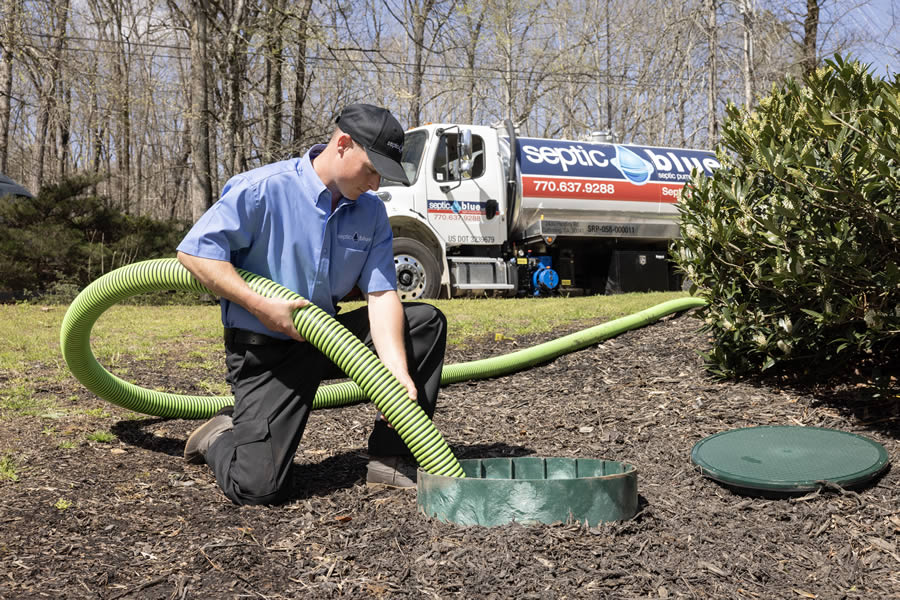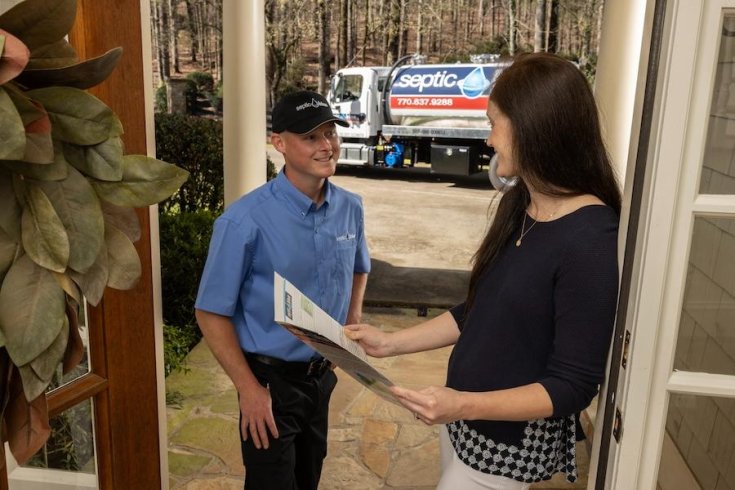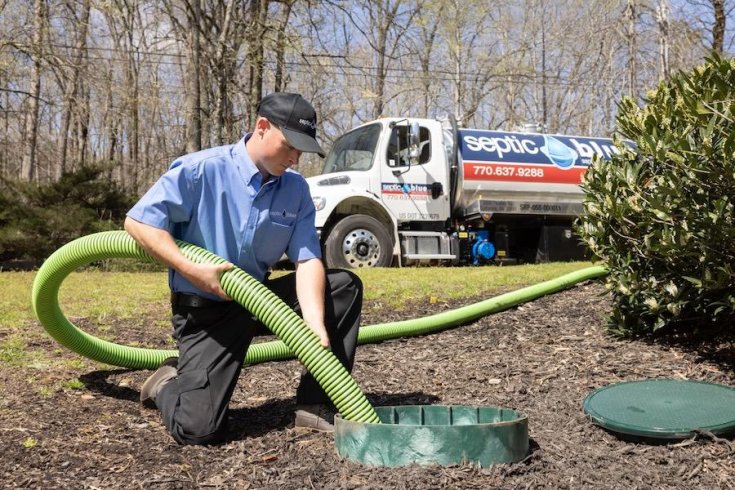Interest Free Financing Up To 36 Months
WE DO NOT ONLY PUMP YOUR TANK - WE CLEAN IT!
Multiple Financing Options Are Available Up To 36 Months
Interest Free Financing Up To 36 Months
WE DO NOT ONLY PUMP YOUR TANK - WE CLEAN IT!
Multiple Financing Options Are Available Up To 36 Months
Maintaining a healthy septic system is crucial for the safety and efficiency of your home's wastewater management. In recent years, there has been an increase in the popularity of "eco-friendly" septic additives as a solution for improving the performance of septic systems and reducing the necessity for frequent septic tank pumping. However, are these products truly capable of fulfilling their promises?
In this blog post, our professionals from Septic Blue of Raleigh will explore the reality behind eco-friendly septic system additives and what you should know before using them.
Septic system additives are products that are intended to improve the efficiency of your septic tank by introducing supplementary microbes and enzymes. These additives are often marketed as a way to break down solid waste, reduce odors, and minimize the need for septic tank pumping. The eco-friendly versions of these products claim to be safer for the environment compared to traditional chemical-based alternatives.
The effectiveness of eco-friendly septic system additives is a subject of ongoing discussion among septic professionals. The natural composition of a septic tank includes enzymes and microbes that are responsible for the breakdown of waste. Although it may appear advantageous to introduce additional microorganisms through additives, numerous experts claim that it may not substantially enhance the tank's functionality. A septic system that is well-maintained and designed properly is already equipped to manage refuse without the need for additional products. Nevertheless, the use of eco-friendly additives may be beneficial in certain circumstances, such as after a septic tank repair in Rolesville or the use of harsh chemicals that may have disrupted the natural bacterial equilibrium in the tank.
Although the effectiveness of environmentally friendly additives is still being investigated, there are certain potential advantages to take into account. These additives are intended to be non-toxic and biodegradable, rendering them less environmentally detrimental than chemical-based products. They might help maintain a balanced microbial environment in your tank, especially if you have used substances like bleach, which can harm the natural bacteria in the system. If you are uncertain about the suitability of additives for your system, consulting a septic company can offer specific advice based on the condition of your tank.

Septic tank pumping in Raleigh has never been so affordable and accessible thanks to the professionals at Septic Blue. We are…

One quarter of Americans rely on septic tanks to process household waste. Most Septic Blue locations have septic tank experts who…

Call Septic Blue today for a second opinion. If you choose to go with Septic Blue, you'll receive $250 off your…

If you are a homeowner or resident in Raleigh that is among the 20 percent of households in the U.S. with…
Professional Saptic Plumbing solutions for every need. Contact Us Today!
If your septic system is already functioning efficiently, adding more bacteria may not be necessary and could even disturb the tank's natural balance. Frequent septic tank cleaning by a professional company is generally more effective in maintaining your system’s health than relying on additives. Moreover, if your system shows signs of failure, such as sewage backups or unpleasant odors, eco-friendly additives are not a substitute for proper septic repair. In such instances, it is imperative that septic professionals conduct a prompt inspection to prevent additional damage.
Rather than relying solely on additives, prioritize regular maintenance to ensure that your septic system is in optimal condition. Septic pumping is a critical part of this routine, as it helps remove accumulated solids that can clog the system. Depending on the size of your household and the capacity of your tank, the majority of experts suggest that you pump the tank every three to five years. Septic tank installation and repair professionals also emphasize the significance of refraining from the disposal of non-biodegradable materials, grease, and harsh chemicals into your system, as these substances have the potential to disrupt the bacterial balance and cause environmental damage.
In certain circumstances, eco-friendly septic system additives may provide some advantages; however, they are not a universal solution for septic maintenance. It is unlikely that the desired results will be achieved by relying on these products without addressing appropriate septic cleaning, pumping, and overall system care. Ultimately, the key to a septic system that functions efficiently is consistent maintenance, appropriate usage habits, and consultation with a reputable septic company when issues arise.

You know your septic system works hard every day, and keeping it in good shape means staying on top of

Ignoring your septic tank might feel harmless, especially if everything in your home still appears to drain the way it should.…

Once you hear the words septic pumping, you probably picture a big truck, a long hose, and a job you’re glad…
.webp)
Your septic system works quietly in the background, treating wastewater and keeping your home running smoothly—but its performance is more connected…